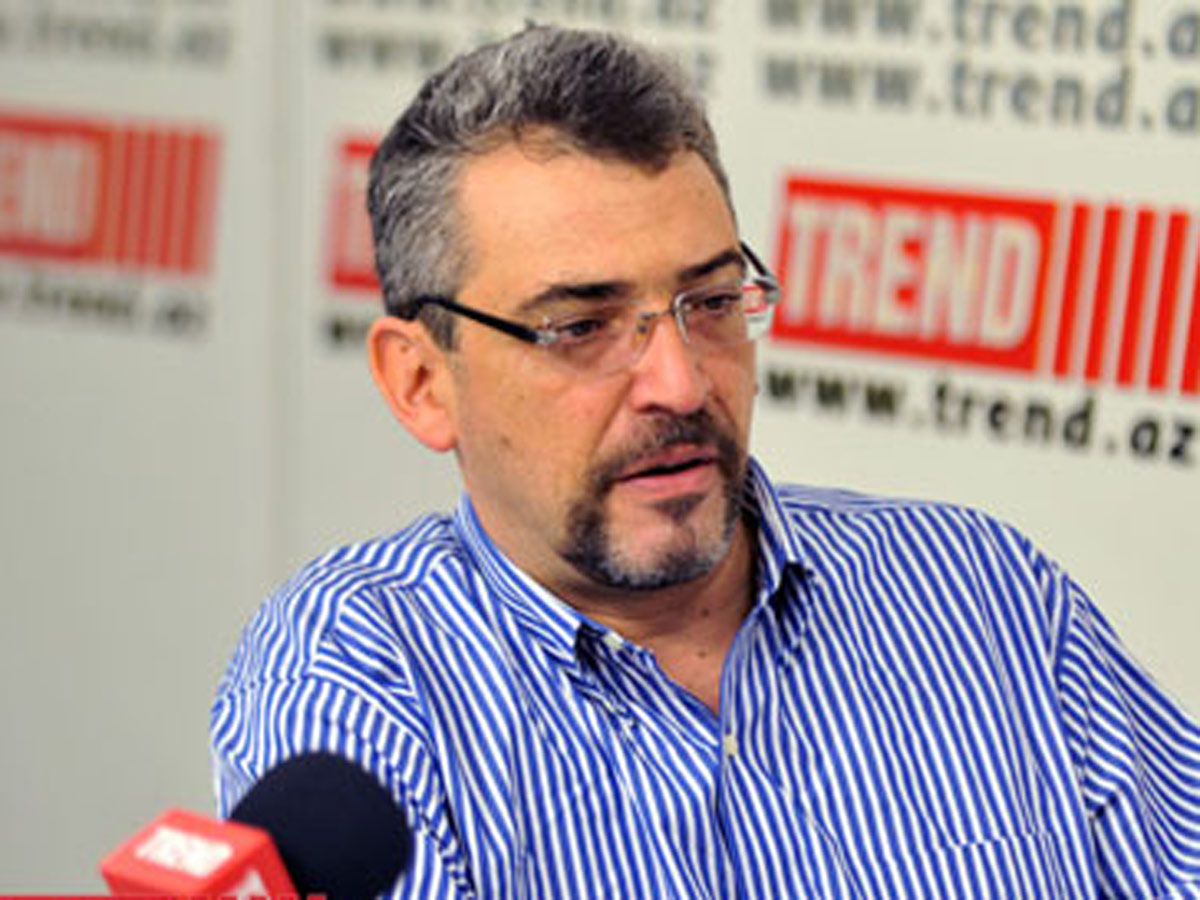Baku, Azerbaijan, Apr. 4
Trend:
The main concern now is to prevent the escalation and stop fighting in the Nagorno-Karabakh conflict zone, says Ariel Cohen, founder of International Market Analysis Ltd., director of the Center for Energy, Natural Resources and Geopolitics, senior fellow at the Institute for Analysis of Global Security.
"The US or Russia could not arrange for a meaningful pathway forward to end the conflict and start moving toward the end of the occupation. An opportunity for a meeting in Washington was missed," he told Trend Apr. 4.
"Clearly, Russia would be interested in inserting its peacekeepers to the conflict zone, including Karabakh and the line of contact in the seven occupied districts," believes the expert.
"This approach worked for Russia in Transnistria, Abkhazia and South Ossetia," added Cohen. "It is a mechanism to control post-imperial space."
He also said Russia benefits from boosting its power by keeping its former dependencies down and selling weapons to both sides.
On the night of Apr. 2, all the frontier positions of Azerbaijan were subjected to heavy fire from Armenians, who were using large-caliber weapons, mortars, grenade launchers and guns. Azerbaijani settlements near the frontline densely populated by civilians were shelled as well. There are casualties among civilians as a result of the shelling.
Six Armenian tanks, 15 gun mounts and reinforced engineering structures were destroyed and more than 100 servicemen of the Armenian armed forces were wounded and killed during the shootouts.
Twelve servicemen of the Azerbaijani armed forces heroically died, one Mi-24 helicopter was shot down and one tank was damaged on a mine.
Three more soldiers of Azerbaijan were killed during the past day and night as a result of the ceasefire violation.
The conflict between the two South Caucasus countries began in 1988 when Armenia made territorial claims against Azerbaijan. As a result of the ensuing war, in 1992 Armenian armed forces occupied 20 percent of Azerbaijan, including the Nagorno-Karabakh region and seven surrounding districts.
The two countries signed a ceasefire agreement in 1994. The co-chairs of the OSCE Minsk Group, Russia, France and the US are currently holding peace negotiations.
Armenia has not yet implemented the UN Security Council's four resolutions on withdrawal of its armed forces from the Nagorno-Karabakh and the surrounding districts.






